April is Oral Cancer Awareness Month, which is an important annual designation that acknowledges the importance of the early detection of oral cancers. As with any type of cancer, when it’s discovered in its early stages, oral cancer has a much longer survival rate. Here we’ll go into detail about what oral cancer is, what types of symptoms you should watch for, prevention tips, and the role your dentist plays in the detection and treatment of oral cancer.
What Is Oral Cancer?
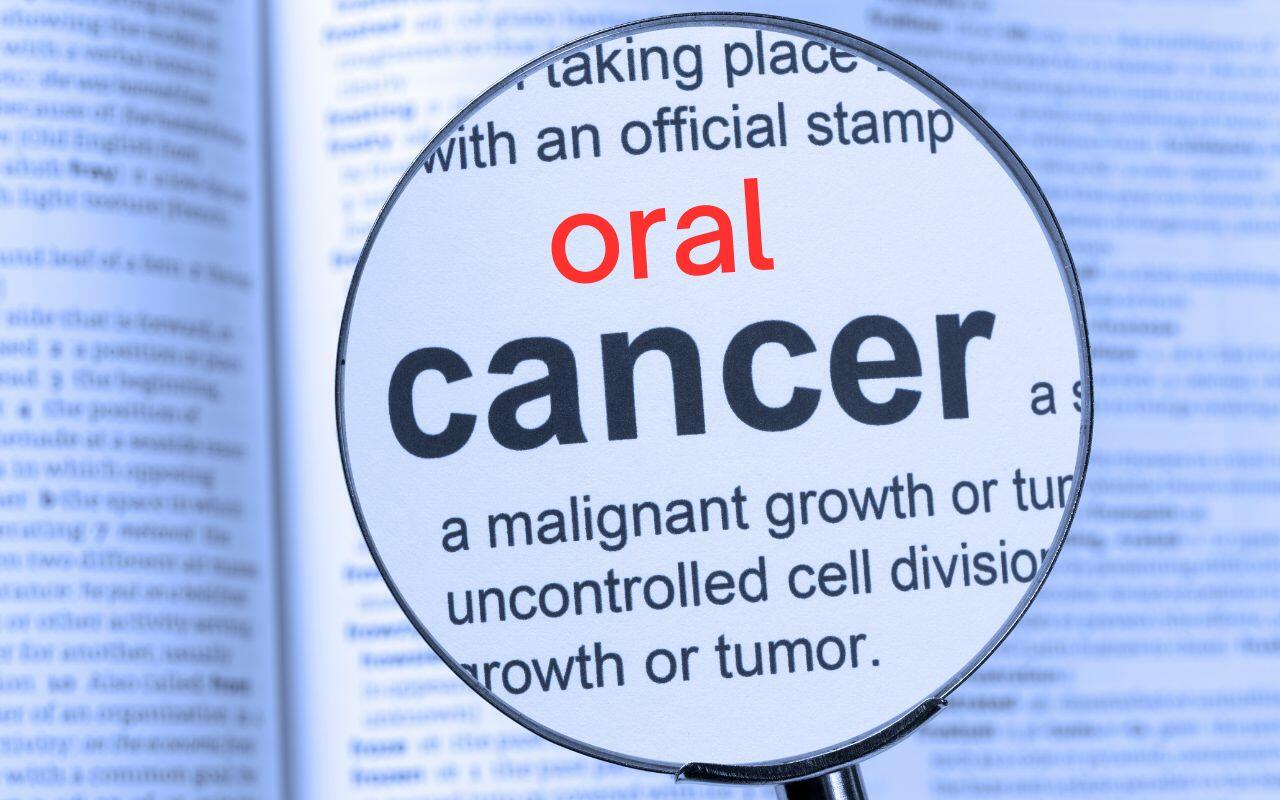
Oral cancer refers to abnormal cells that grow and spread in and around the mouth. It can affect several different areas, including the lips, gums, tongue, salivary glands, tonsils, inside of the cheeks or lips, back of the throat, or roof and floor of the mouth.
How Serious Is Oral Cancer?

Oral cancer has the potential to be very serious or even fatal if not identified and treated at an early stage. The five-year survival rate if the cancer is diagnosed early is 85% for all people. Approximately 28% of oral cancers are indeed diagnosed at an early stage. If you have oral cancer that has spread to surrounding tissues or organs, or if the lymph nodes become affected, the overall five-year survival rate drops to 68%. So, is oral cancer deadly? It can be, but the key is to detect the cancer as early as possible so you can start the appropriate treatment.
Common Oral Cancer Symptoms
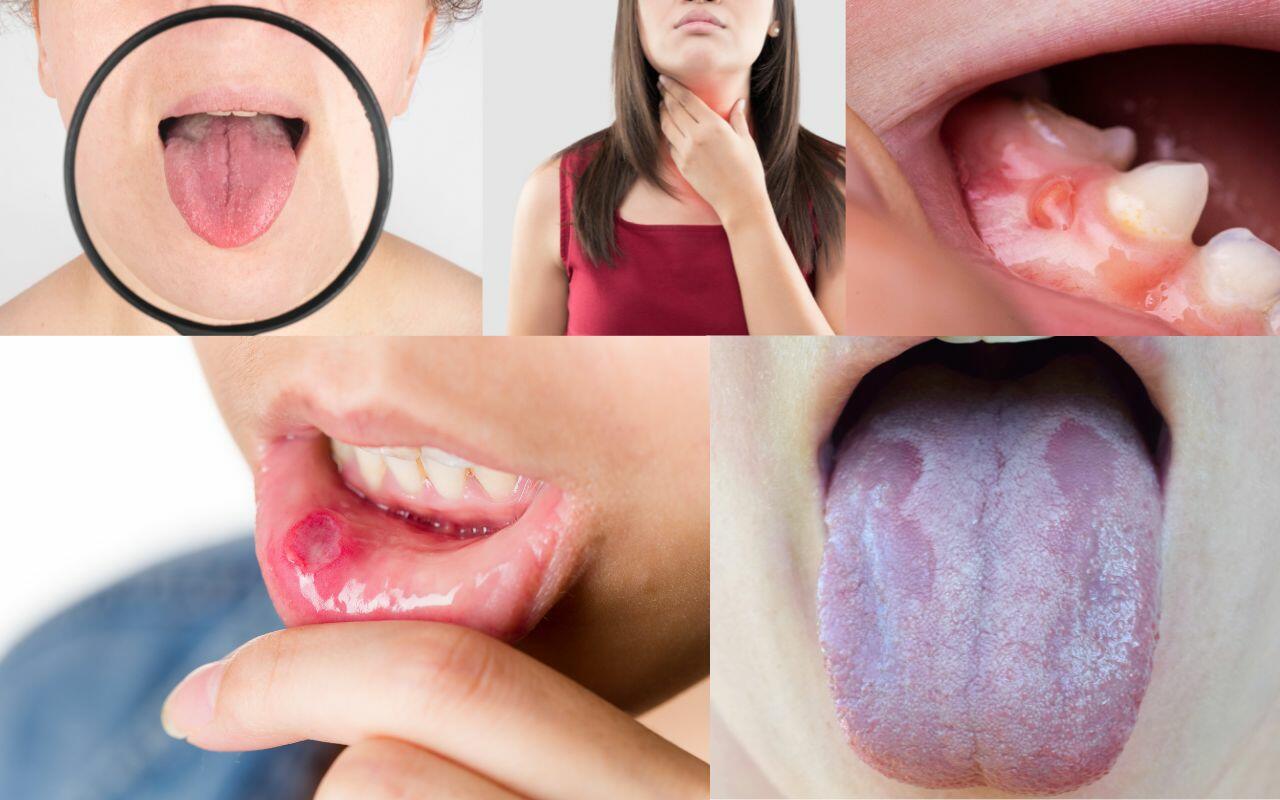
Keeping an eye open for the symptoms of oral cancer will help you get the best possible outcome. Here are some potential symptoms that you should be aware of and watch for:
- Painless lumps on your tongue, lips, or neck
- Unexplained bleeding in your mouth
- Changes in taste or in the sensation on your tongue
- Sores in your mouth that won’t heal
- Changes in the colour or texture of tissue in your mouth
- Persistent sore throat that makes it difficult to swallow
- White or dark red patches in your mouth or on your lips
Risk Factors
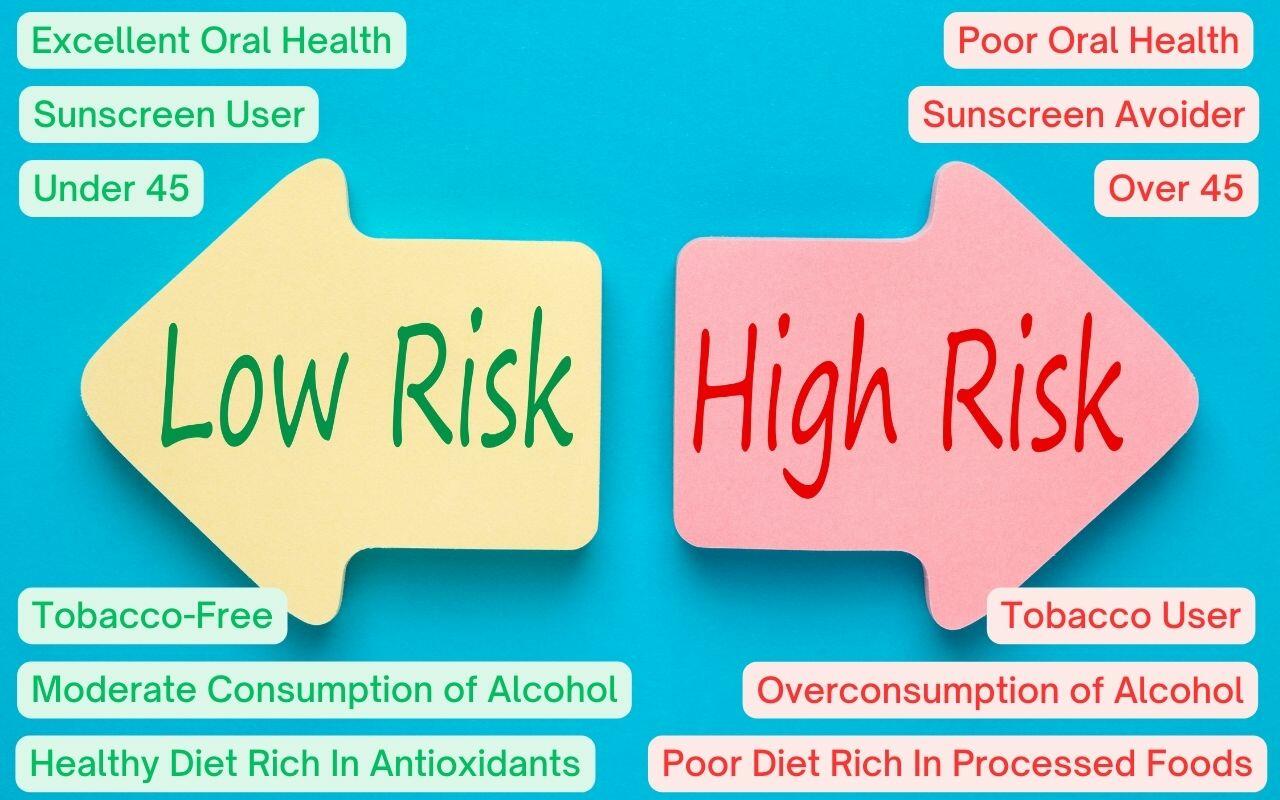
There are a variety of risk factors that can contribute to oral cancer. Some of these can be standalone risks, or you may have a combination of factors that contribute to an oral cancer diagnosis. It’s important to note that these risk factors don’t guarantee you’re going to get oral cancer, but they are worth noting to help increase your awareness so you can take preventative steps:
- Age: There’s really no set age that dramatically increases your risk of oral cancer, but it is more common in people 45 and older. Once you’ve reached this age range, it’s even more important to keep up with your dental screenings to ensure your mouth stays healthy and any issues are caught early.
- Tobacco use: Using tobacco products is one of the most common preventable risk factors for oral cancer. Whether it’s smoking cigarettes, chewing tobacco, snuff, or any of the wide range of tobacco products that are available – including e-cigarettes or vaping – they are carcinogenic and increase your risk. If you are currently a smoker or use tobacco products, it’s a good idea to do whatever is necessary to quit as soon as possible.
- Overuse of alcohol: not many people associate drinking alcohol with oral cancers, but it is indeed a risk factor. Specifically, the overconsumption of alcohol on a consistent basis. If you enjoy alcoholic beverages, make sure to drink in moderation to help reduce your risk.
- HPV infection: HPV refers to human papillomavirus, which is a common STI that affects the skin. It can also be a risk factor for oral cancer, so it’s important to reduce your risk as much as possible.
- Overexposure to sunlight: If you are out in the sun a lot without sunscreen on your lips, you may increase your risk of oral cancer. Most of us don’t consider the lips when applying sunscreen, but you can get lip balms that have UV protection that will help keep you safe.
- A poor diet: As with any type of cancer, your risk of oral cancer increases if you have a poor diet. Make a point of including a range of colourful fruits and vegetables in your daily diet to boost your antioxidant intake and reduce your risk of oral cancer.
- Poor oral health: It stands to reason that poor oral health would be a contributing factor to oral cancer. It’s important to keep up with your dental visits and follow your dentist’s advice when it comes to daily routines and oral health practices.
How To Prevent Oral Cancer
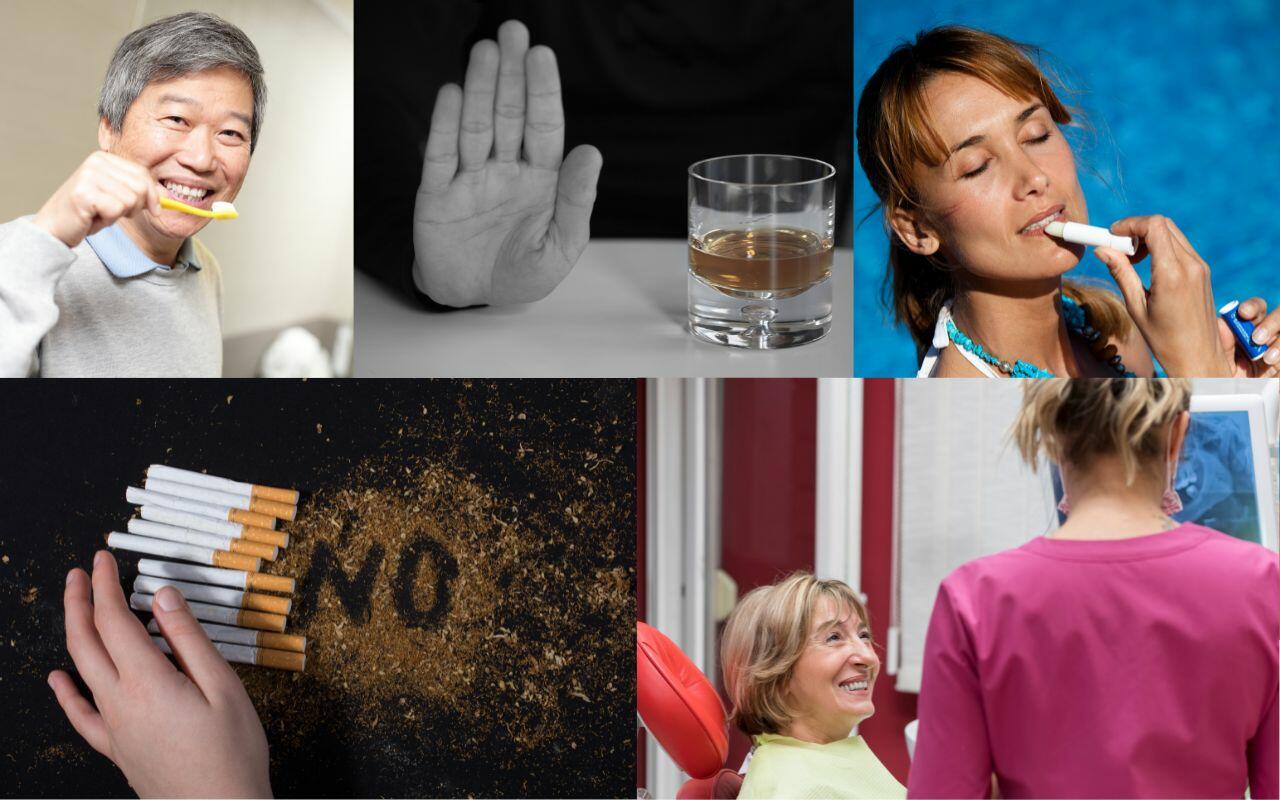
Prevention is always the best way to deal with any type of cancer, including cancers of the mouth. If you’re proactive and take your oral health seriously, you can usually avoid problems in the future. Here are some of the best ways to help prevent oral cancer:
- Brush and floss your teeth on a daily basis
- Visit your dentist and dental hygienist regularly for checkups and cleanings
- Avoid using tobacco products, and if you currently use them, make a point of quitting immediately
- Only drink alcohol in moderation
- Be mindful of your sun exposure and use lip balm with UV protection when you’re outside for extended periods of time
- Take measures to reduce your risk of HPV infection
The Role Dentists Play In Oral Cancer Screening
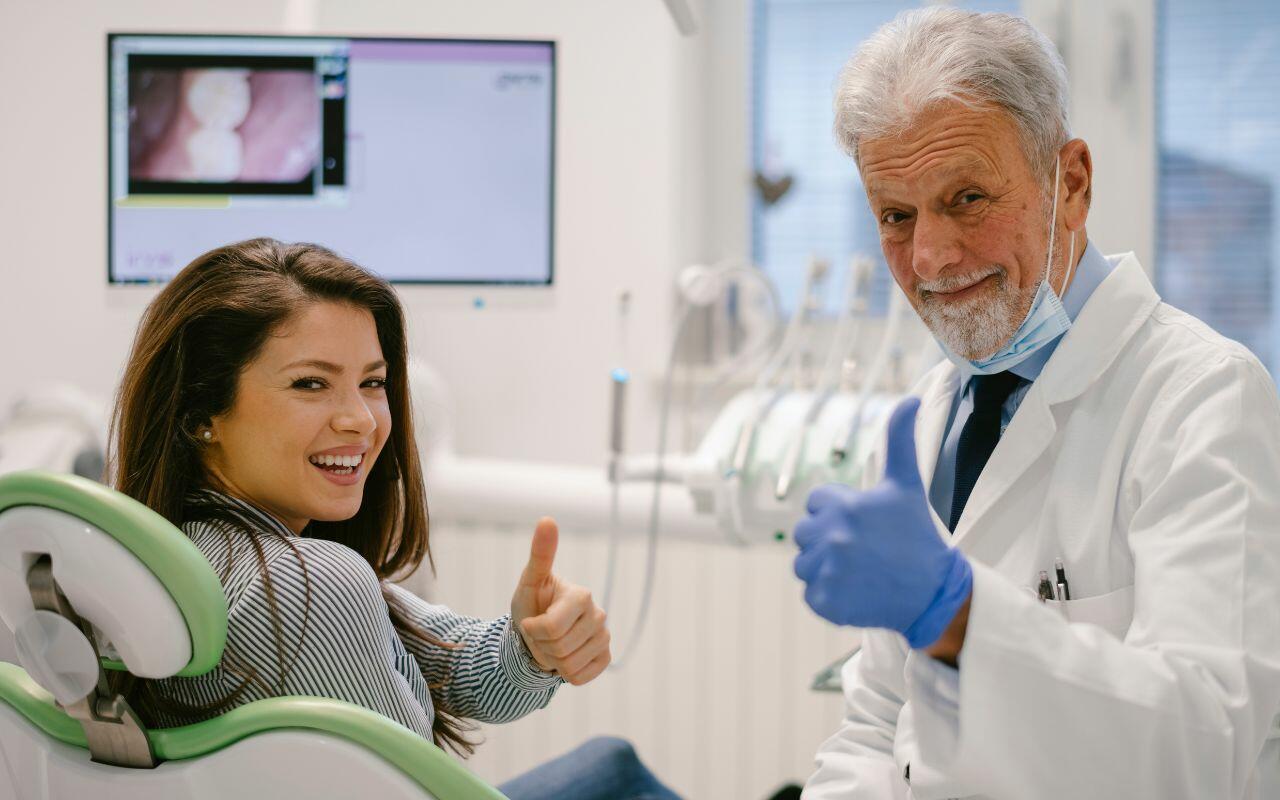
While your dentist isn’t going to treat any type of oral cancer, they play an important role when it comes to early detection. If you keep up with your regular dental visits, your dentist will notice subtle changes in your mouth that you may not have noticed yourself. This is even more important as you get older since age is one of the main risk factors for developing oral cancer.
At Bradford Family Dentistry, we provide a full range of dental services that include oral cancer screening. We know how important it is to maintain your oral health over the years, and we will always go the extra mile to make sure your teeth and mouth are in great shape. If you’re looking for a new dentist in the Bradford area, we’re just a phone call away.
Call us today at 905-775-5307 or click here to request an appointment.
